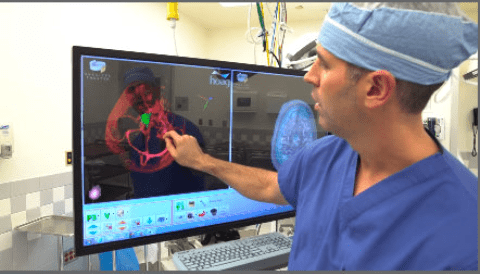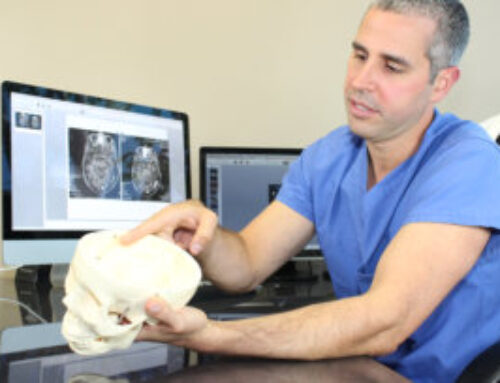Minimally Invasive Surgery Vs. Traditional
Surgery is a big deal for anyone facing it and you may be wondering if traditional or minimally invasive surgery is ideal for your situation. In some scenarios, you may have either choice and it’s important to discuss this with your surgeon.
Minimally invasive requires smaller incisions, reduces potential damage caused to surrounding tissue, and smaller complication rates. Traditional, or open surgery, will require larger incisions due to the necessity of needing to see more of the area being operated on.
There are many more nuances to consider than the simple explanation above. As you keep reading, we’ll cover both choices as well as focus on spinal surgery options in particular. You’ll also learn how to decide what option may be best for you and cover a few questions to ask your neurosurgeon.
Minimally Invasive Surgery
As with anything, there are some pros and cons to minimally invasive spine surgery. Let’s get into them below.
Pros
The pro’s to minimally invasive surgery:
- Quicker recovery time
- Reduced pain
- Reduction of blood loss
- Usually has significantly less risk involved
Now, let’s get into the cons.
Cons
While it seems to be the ideal option, there are some cons:
- It’s not available for all diseases or medical problems
- Requires specifically trained surgeons
- Some procedures may take longer compared to traditional
Now, let’s talk about minimally invasive spinal surgery.
Minimally Invasive Spinal Surgery
When it comes to spinal surgery, not every problem will be fixable with minimally invasive procedures. However, there are quite a few conditions it can treat. A common problem that many suffer from is Sciatic pain that stems from herniation in one of the spinal disks.
The procedure used is called a Microdiscectomy. Your surgeon will use a small incision and go into the spine to remove the offending disk. The recovery time usually falls somewhere between 2-6 weeks.
Traditional Surgery
Just like minimally invasive surgery, traditional surgery also has pros and cons. Let’s get into them below.
Pros
Traditional surgery, also referred to as open surgery, has its own pro’s:
- Better outcomes with certain conditions
- Offers a better view of the surgical area
- Shorter operation times with certain ailments and diseases
Now, let’s get into the cons.
Cons
There are quite a few cons to consider as well:
- Longer recovery time
- Higher risks
- Longer recovery
- Scarring
- Increased damage to soft tissue
Now, let’s talk about traditional spinal surgery.
Traditional Spinal Surgery
Traditional spinal surgery will be the likely outcome if you also have tumors that need to be removed. Many surgeons today will try to opt for minimally invasive if at all possible, but sometimes the only option you have is traditional.
When it comes to traditional surgery your doctor will make an incision that exposes most or all of the spine in order to view the surgical site as much as necessary. The recovery time for open surgery will be significantly longer and comes with many risks that are associated with all open surgeries. It’s best to discuss either option with your doctor.
Minimally Invasive Vs. Traditional Surgery: Cost Comparison
One big thing many patients factor into their decisions can come down to cost, especially if a portion needs to be paid out of pocket. Many times, minimally invasive surgery will cost less because it can often be done in a non-hospital setting and you’ll most likely be able to return home after surgery which reduces in-patient stays.
Traditional surgeries must be done in a hospital operating room and will frequently require any patient to stay overnight or several nights post-op to monitor your recovery. This will greatly increase the cost you accrue. There is about a $4000 increase on average for traditional.
It may also depend on the location of what you are looking at. For instance, Newport Beach minimally invasive lumbar fusions, levels 1 and 2, are cheaper in cost than Savannah Georgia. These costs do not reflect what insurance will pay because that is up to each individual provider on what percentage of the total cost they will cover.
Questions to Ask your Neurosurgeon
While surgery is a big deal and it can seem intimidating or even frightening, the best way to ease your anxiety is to discuss everything with your Neurosurgeon in Newport Beach.
Here are some good questions to ask to get an idea of what you might want to know:
- Can my ailment be fixed with a minimally invasive surgery?
- Can you explain the procedure to me?
- What are the pros and cons of having traditional surgery compared to a minimally invasive one?
- What are the complications and risk factors of both options?
- What will the recovery time be for my surgery?
- What are all my surgical and non-surgical options?
While these questions may not answer everything you’ll need or want to know, they are a good starting point to get the best information for you to make an informed decision. Your doctors and surgeons will answer anything you might be curious about because they want to give you the best solution and continue giving you a fantastic quality of life.
Final Thoughts
There are many things to consider when it comes to having major surgery done. The best thing to do is get a consultation done and with the help of your doctor, decide if it’s best to get a traditional spinal surgery or a minimally invasive spinal surgery treatment.
Check with your insurance provider to determine what cost is out of pocket and make sure they cover the treatment your doctor recommends for you. To learn more, find a specialist near you and have a consultation done to determine the best path for you!


















